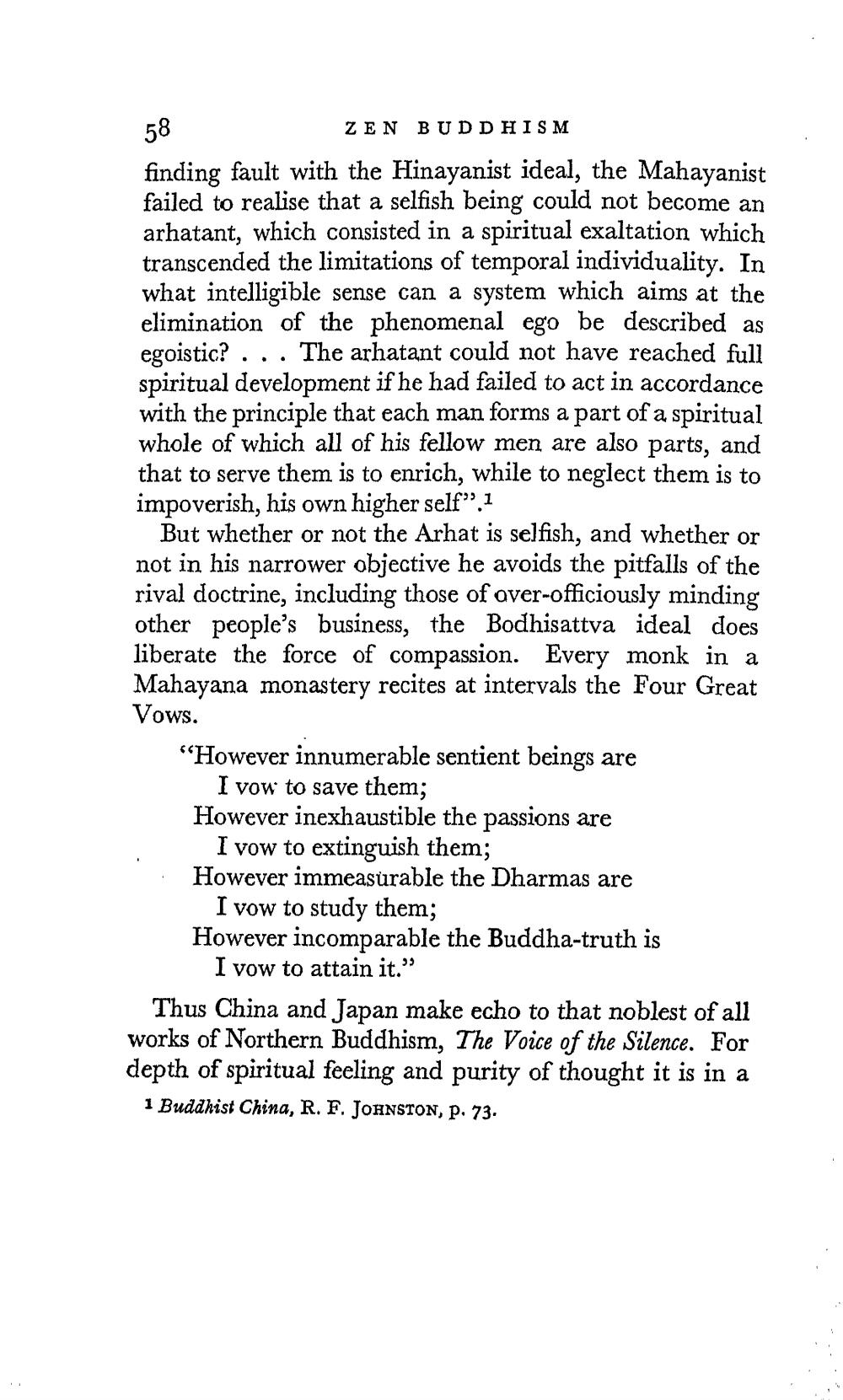________________
58
ZEN BUDDHISM finding fault with the Hinayanist ideal, the Mahayanist failed to realise that a selfish being could not become an arhatant, which consisted in a spiritual exaltation which transcended the limitations of temporal individuality. In what intelligible sense can a system which aims at the elimination of the phenomenal ego be described as egoistic? ... The arhatant could not have reached full spiritual development if he had failed to act in accordance with the principle that each man forms a part of a spiritual whole of which all of his fellow men are also parts, and that to serve them is to enrich, while to neglect them is to impoverish, his own higher self”. 1
But whether or not the Arhat is selfish, and whether or not in his narrower objective he avoids the pitfalls of the rival doctrine, including those of over-officiously minding other people's business, the Bodhisattva ideal does liberate the force of compassion. Every monk in a Mahayana monastery recites at intervals the Four Great Vows. "However innumerable sentient beings are
I vow to save them; However inexhaustible the passions are
I vow to extinguish them; However immeasurable the Dharmas are
I vow to study them; However incomparable the Buddha-truth is
I vow to attain it." Thus China and Japan make echo to that noblest of all works of Northern Buddhism, The Voice of the Silence. For depth of spiritual feeling and purity of thought it is in a 1 Buddhist China, R. F. JOHNSTON, P. 73.




